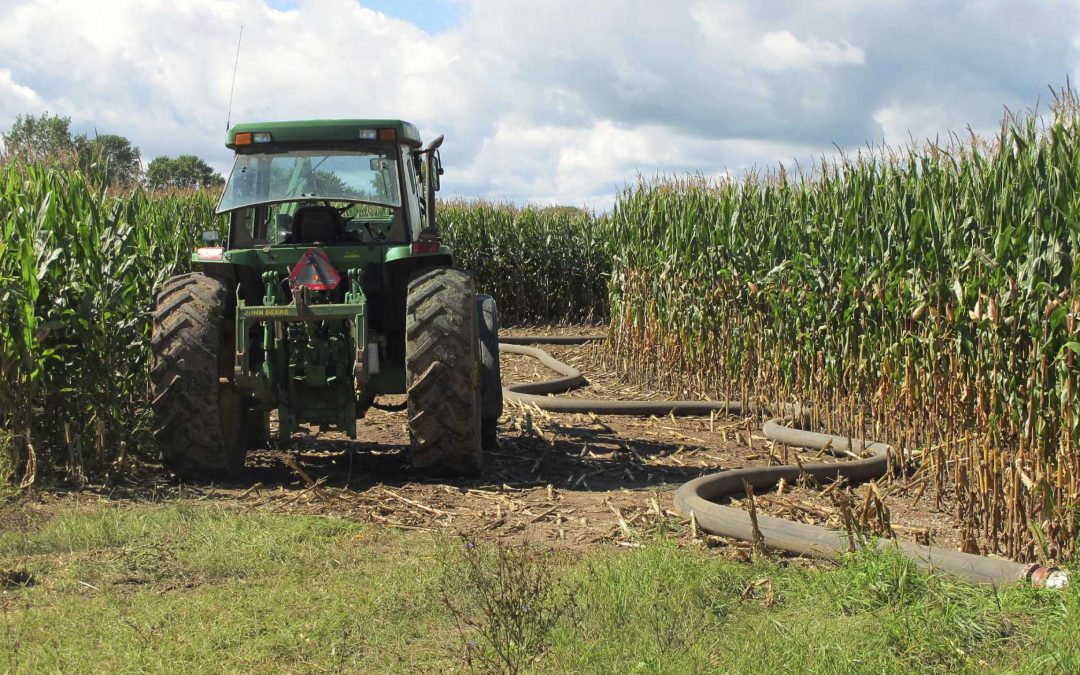Even before consequences of COVID-19 threatened Americans’ financial security, U.S. farmers and ranchers recognized they could protect the environment and save money by transitioning to renewable energy sources.
But initial prices and the cost of maintenance are discouraging them, experts say, and the federal government needs to do more.
Shifting the reliance of farms and ranches from fossil fuels to renewable energy sources is not only essential to reduce their carbon footprint, but also to hold down costs, Rep. David Scott, D-Ga., said Thursday at a hearing of the House Subcommittee on Commodity Exchange, Energy and Credit.
“Energy is a particular concern for farmers, for ranchers, as approximately 15% of production costs for U.S. farms is tied up in energy costs,” said Scott, the subcommittee chair. “By comparison, the average American household spends just a little over 2% of its budget on electricity and the same amount for gas.”
Fellow Georgia Rep. Austin Scott, a Republican, said rural Americans shoulder the burdens of “an extreme climate agenda.” He said while federal programs like the Environmental Quality Incentive and Rural Energy for America have been effective in implementing “innovative, on-farm energy production practices,” many farmers still face financial barriers switching to renewable energy sources like wind turbines, solar panels and anaerobic digesters.
Dairy farmers who rely on digesters, for instance, have continuous expenses to maintain sustainable technology. After buying a digester, which can turn solid waste into electricity and alternative fuel, farmers can sell excess repurposed energy back to electrical grids. Net metering, however, does not yield enough profit to solely support the cost of operating the digesters.
Elizabeth Wolters, deputy public policy director at New York Farm Bureau, said in a phone interview that the state and federal governments should develop policies that provide financial support for farms’ sustainability efforts.
“Unfortunately, net metering is very dependent on energy prices, and we don’t have a renewable fuel standard here in New York,” Wolters said. “It’s something the New York Farm Bureau is advocating for because we do think that it will really help those farms who are looking to invest in a digester or support those who already have one.”
As “stewards of the land,” farmers already recognize the importance of taking care of the environment, Wolters said. Long-term infrastructure systems and financial support are needed to help farmers reduce their environmental impact, she said
Peter Wagner of Wagner Dairy in Poestenkill has owned a digester for 10 years, and while he has made some money from net metering and received grants from the New York State Energy Research and Development Authority, the maintenance costs of the technology are high.
“Digesters are more efficient than solar panels and wind turbines, but if something goes wrong, it’s not pretty,” Wagner said. His digester cost his small farm about $1 million. When it was installed, they earned 3 cents per kilowatt, while farms in states like Vermont earned 20 cents per kilowatt.
Wagner also said more support on a local and national level would prove to banks that this kind of technology is a worthwhile investment.
“We cover our usage and other farms’ usage, and we are the smallest farm by a large stretch,” Wagner said.”It’s difficult to get involved with something like this, but at this point, we’ve figured it out and are pretty happy with it.”


